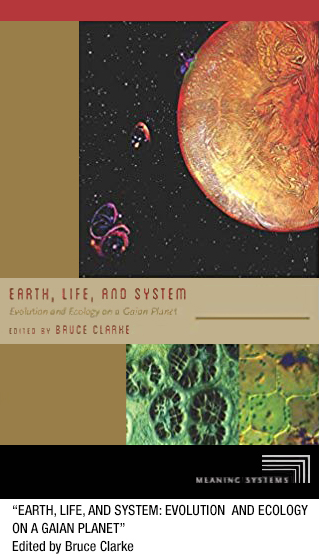A Chair in the Cosmos

Horn Professor Bruce Clarke Appointed by Library of Congress
Compiled by Toni Salama
The Library of Congress has appointed Texas Tech University Horn Professor Bruce Clarke as the sixth Baruch S. Blumberg Chair in Astrobiology. The announcement came Aug. 20.
It is an appointment that will take Clarke, the Paul Whitfield Horn Professor of Literature and Science in the Department of English, to the John W. Kluge Center at the Library of Congress in Washington, D. C., for a 10-month residency that begins in December 2018.
The astrobiology chair at the John W. Kluge Center is a collaboration between the NASA Astrobiology Program and the Library of Congress. It is named for Baruch "Barry" Blumberg, the late Kluge Center Scholars Council member, Nobel Laureate and founding director of the NASA Astrobiology Institute. Funded by NASA and managed by the Kluge Center in consultation with the NASA Astrobiology Institute, the program encourages holders of the Blumberg Chair to conduct research at the intersection of the science of astrobiology and its humanistic and societal implications.
Clarke's research focuses on 19th- and 20th-century literature and science, with special interests in systems theory, narrative theory and ecology. At the Library of Congress, he will work on a project titled, "Astrobiology, Ecology and the Rise of Gaia Theory." The Gaia theory postulates that the Earth's living and nonliving components form a self-regulating planetary system; this provides a model for understanding viable conditions on our home planet and for the detection of life on other worlds.
A key component of Clarke's research will be to study the work of the late American scientist Lynn Margulis, whose scholarship on cell biology shaped the study of evolution and made a lasting impression on Clarke. Her collaboration on the Gaia hypothesis with the British atmospheric chemist James Lovelock received crucial NASA funding in its formative decades. The Library of Congress has been collecting Margulis' papers since her election to the National Academy of Sciences in 1983.
 Clarke's ongoing commitment to this field of research, and his deep interest in the
work of Margulis, led him to organize an innovative symposium, "Earth Life & System:
An Interdisciplinary Symposium on Environment and Evolution," held on the Texas Tech
campus in September 2012.
Clarke's ongoing commitment to this field of research, and his deep interest in the
work of Margulis, led him to organize an innovative symposium, "Earth Life & System:
An Interdisciplinary Symposium on Environment and Evolution," held on the Texas Tech
campus in September 2012.
It attracted scholars of international stature such as Dorion Sagan, son of Lynn Margulis and the late astrophysicist Carl Sagan; James Strick, coauthor of "The Living Universe: NASA and the Development of Astrobiology" and chair of the Program in Science, Technology, and Society at Franklin and Marshall College; Susan Oyama, author of "The Ontogeny of Information: Developmental Systems and Evolution" and professor emerita at John Jay College and CUNY Graduate Center in New York City; and Peter Westbroek, professor emeritus of Geophysiology at Leiden University in the Netherlands; among others.
The list of internationally respected speakers also included Texas Tech's own Sankar Chatterjee, Horn Professor in the Department of Geosciences and curator of Paleontology and director of the Antarctic Research Center at the Museum of Texas Tech University; and Christopher Witmore, professor Archaeology & Classics in the Department of Classical & Modern Languages & Literatures; as well as Clarke himself.
The symposium, by Clarke's design, went on to publish "Earth, Life, and System: Evolution and Ecology on a Gaian Planet" (Fordham University Press, 2015), a book of essays by the speakers, with Clarke as editor.
About the Kluge Center
The mission of the John W. Kluge Center at the Library of Congress, as established in 2000, is to "reinvigorate the interconnection between thought and action," bridging the gap between scholarship and policymaking. To that end, the center brings some of the world's great thinkers to the Library of Congress to make use of its collections and engage in conversations addressing the challenges facing democracies in the 21st century.
About the Library of Congress
The Library of Congress is the world's largest library, offering access to the creative record of the United States—and extensive materials from around the world—both on site and online. It is the main research arm of the U.S. Congress and the home of the U.S. Copyright Office.
Glenys Young contributed to this article.
College of Arts & Sciences
-
Address
Texas Tech University, Box 41034, Lubbock, TX 79409-1034 -
Phone
806.742.3831 -
Email
arts-and-sciences@ttu.edu
